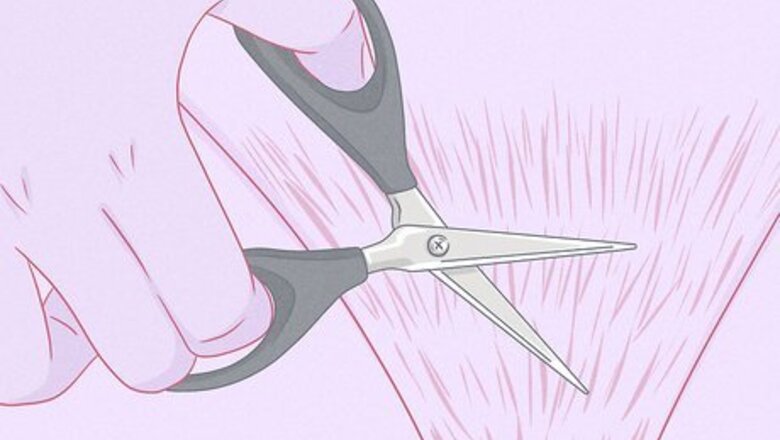
views
X
Research source
Not to worry! There are plenty of ways to stay comfortable after you shave. We’ve put together plenty of tips, tricks, and preventative measures you can try the next time you grab your razor.
Trim your pubic hair beforehand.
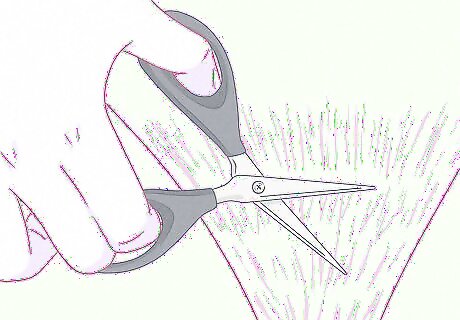
A pair of scissors or some electric clippers will do the trick. Don’t immediately start shaving with a disposable razor—the thicker clumps of hair may dull your razor blade. Instead, trim your hair down until it’s about 1 to 3 cm (0.39 to 1.18 in) long. A dull razor can lead to nicks and cuts. Never trim your pubic hair with a dull pair of scissors.
Hop in a warm shower or bath to shave.
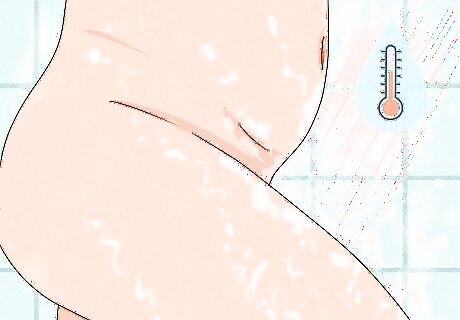
Warm water softens your pubic hair and opens your pores. This makes shaving a lot easier and prevents those pesky bumps and razor burn.
Exfoliate before you shave.
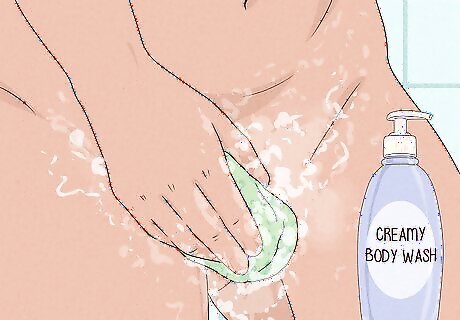
Exfoliating removes dead skin cells, resulting in a closer shave. Gently go over your pubic area with an exfoliating sponge, loofah, or washcloth. Don’t use any harsh exfoliating products. Not enough exfoliation to remove excess layers of skin causes ingrown hairs. Daily exfoliation will prevent razor bumps because the hair will never get a chance to regrow towards the skin and become trapped.
Grab a fresh razor for each shave.
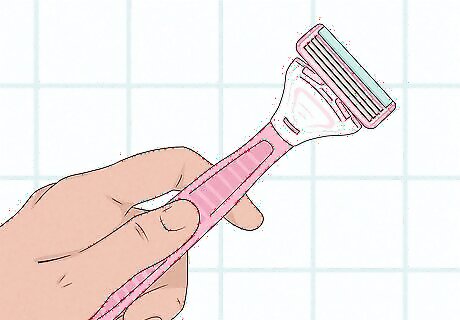
A sharp razor gives you a smooth, close shave. Pubic hair is really coarse and thick, so it's best to use a fresh, sharp blade each time. If you can, shave with a disposable razor built with cushions and moisturizing strips, which help protect your skin.
Apply shaving cream before you shave.
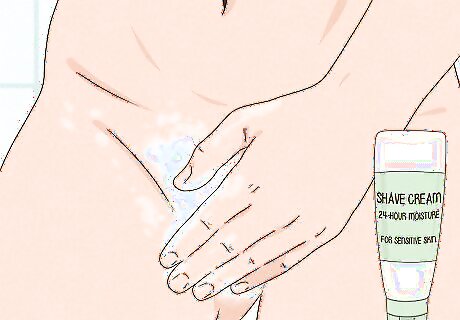
Shaving cream helps guard your skin as you're shaving. Special creams and gels create a “barrier” of sorts, which helps protect your skin. Get a cream made for sensitive skin and try to avoid using regular soap, which can leave your skin dry and irritated. Pick up shaving cream or gel from any store that sells razors and other personal grooming tools.
Shave with the grain of your pubic hair.
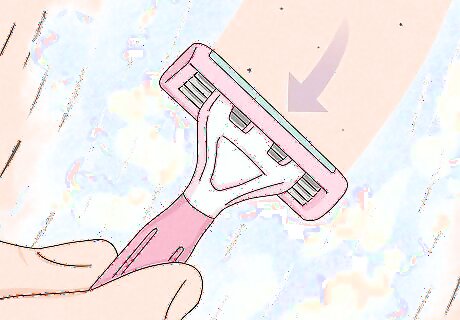
Pubic hair usually grows downward. Hold your skin taut with one hand and use the other to guide your razor in smooth, downward motions. Go slow so you don't cut yourself. Shaving against the grain of your hair isn’t a good idea, and can leave you with painful razor bumps.
Rinse off your razor in between passes.
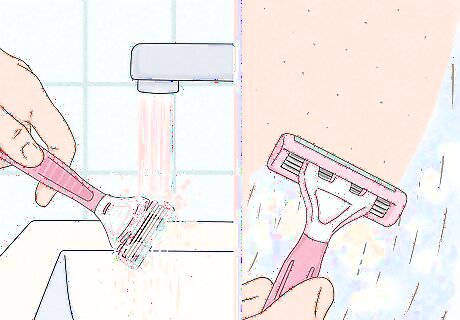
This clears away the hair stuck in the blades so you get a close shave. Once all the old hair is gone, shave another section of hair. Continue shaving and rinsing until you’re completely finished up.
Rinse off your skin with warm water and pat it dry.
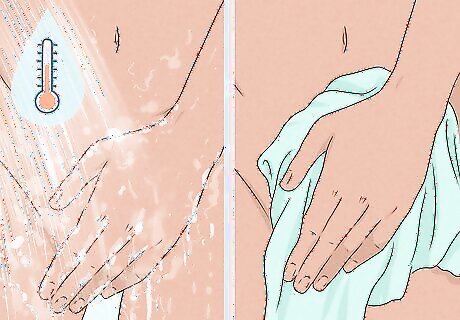
Leaving shaving cream residue behind can irritate your skin. Then, pour cool water over your skin, which will encourage your pores to close. Gently pat the skin so it’s completely dry.
Apply an aloe vera gel after you shave.
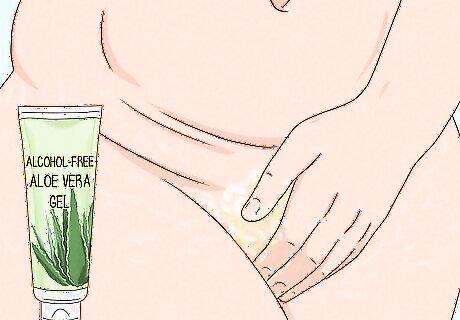
Aloe vera gel soothes and moisturizes your skin. Use an alcohol-free aloe vera gel since products with alcohol can sting and irritate your skin If you don’t have any aloe vera gel, apply a moisturizing body oil or lotion to the area instead. You can also set a cool, damp cloth over your skin once you’re done shaving. This may prevent unwanted irritation, like razor bumps.
Try hair removal creams instead of shaving.
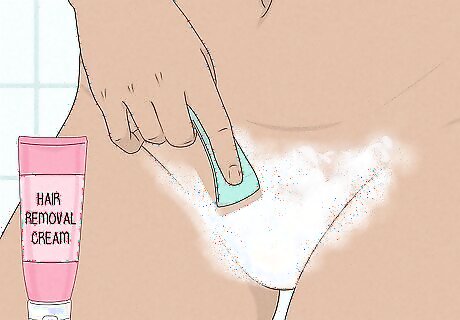
Hair removal creams may help prevent ingrown hairs. Follow the instructions on your box or bottle, and spread the cream over your skin. Wait several minutes, and then rinse off the cream completely. Hair removal creams can sting or burn. If you’ve never tried this type of product before, apply a very small amount first and see how your skin reacts.
Get a Brazilian wax.
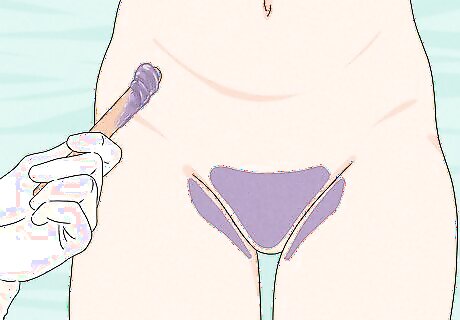
A Brazilian wax removes all the hair in your pubic area. While you won’t get “razor bumps” from this kind of wax, you could still experience ingrown hairs. If you’re worried about this, consider booking a professional Brazilian wax at a salon. Wait until your hair is between ⁄4 to ⁄2 in (0.64 to 1.27 cm) long before you schedule a waxing appointment. For reference, a Brazilian wax lasts about 3-4 weeks.
Opt for laser hair removal.
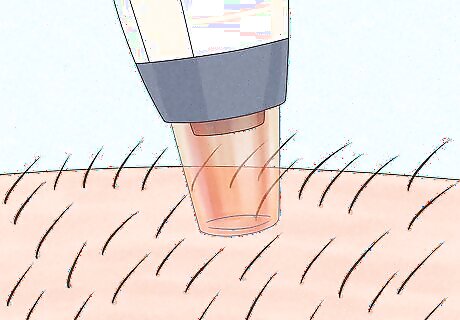
Laser hair removal is an expensive but permanent solution. With laser hair removal, you don’t have to worry about razor bumps, irritated skin, or any other shaving-related injuries. In fact, this method prevents 80 to 90% of your pubic hair from growing back. Unfortunately, this treatment tends to cost hundreds of dollars, and may not be a good match for your budget. Always schedule an appointment with an experienced, board-certified physician.














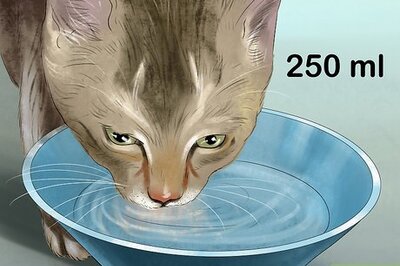




Comments
0 comment